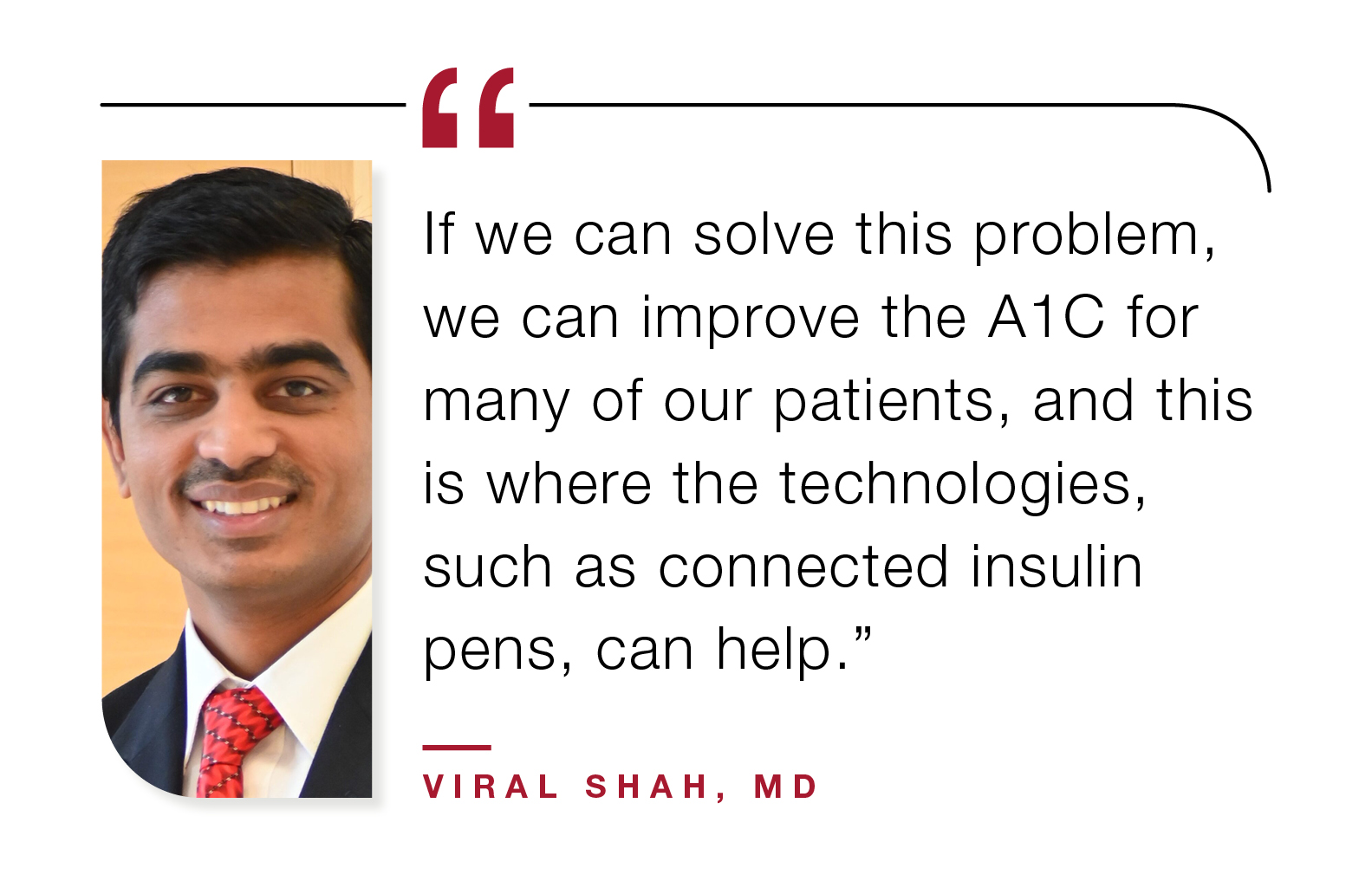-
Genetics and epigenetics help unravel mechanisms of insulin resistance
Panelists including Amit R. Majithia, MD, presented new opportunities and approaches to quantify and understand insulin resistance in diverse populations. Genome-wide association studies are among the tools that can tease out the genetic basis of metabolic responses.
-
Panel looks beyond insulin for managing inpatient glucose levels
While current guidelines have limited data on the use of non-insulin therapies for patients with diabetes who are hospitalized, several randomized trials are focusing on the use of incretin-based therapy for this patient population, Smita Kumar, MD, explained at the 82nd Scientific Sessions.
-
Panel explores insulin strategies to overcome ‘therapeutic inertia’ in type 2 diabetes
Viral Shah, MD, pointed to missed insulin doses as one of the main contributors to therapeutic inertia for these patients. Data from multiple studies indicate up to 30% of people with type 2 diabetes miss at least one basal insulin dose per month. Continuous glucose monitoring, connected insulin pens, and automated insulin delivery may be…
-
Intermittent fasting, timing of exercise can impact metabolic health
Patient fatigue with counting carbs and consuming high-protein snacks may drive interest in exploring dietary alternatives for type 2 diabetes management. Krista A. Varaday, PhD, discussed the effects of intermittent fasting and exercise on fasting insulin, insulin resistance, and insulin sensitivity, as well as the barriers to patient adherence to time-restricted eating.
-
New approaches to autoimmunity offer the potential to delay or reverse type 1 diabetes
Loss of beta cell function happens abruptly around the time of type 1 diabetes onset, noted panelist Matthias von Herrath, MD, though many individuals with long-standing type 1 diabetes retain beta cell mass and some degree of beta cell function. Hallmarks of progression include upregulation of major histocompatibility complexes and the appearance of CD8-positive T-cells…
-
Panelists review ADA criteria for defining ‘remission’ in type 2 diabetes
Last year, an international group of experts convened by the ADA published a consensus report on the clinical definition of “remission” in type 2 diabetes. During the 82nd Scientific Sessions, members of the consensus report writing group, including Philip Schauer, MD, discussed the rationale behind the report’s recommendations.
-
Screening, monitoring, and treatment strategies evolve for early type 1 diabetes
Among the available screening tools for type 1 diabetes, autoantibody testing can identify people who are in the early stages of the disease and are at high risk of developing clinical type 1 diabetes, providing a window of opportunity for early intervention and potentially preventing diabetic ketoacidosis, explained Chantal Mathieu, MD, PhD.
-
Emerging insights into the heterogeneity of type 2 diabetes include 6 distinct subphenotypes of prediabetes
Investigators found that three of the subphenotypes have increased glycemia, but only individuals in two clusters have imminent diabetes risks, explained Robert Wagner, MD. By contrast, they found another cluster of individuals with prediabetes who have only moderate risk of type 2 diabetes but an increased risk of kidney disease and all-cause mortality.
-
NAFLD and diabetes form a ‘wicked’ combination that presents myriad treatment challenges
A concurrent diagnosis of non-alcoholic fatty liver disease makes diabetes more difficult to control and vice versa, explained Kenneth Cusi, MD, at the 82nd Scientific Sessions. Cardiovascular risk increases in diabetes patients with NAFLD, as does the risk of microvascular complications. And diabetes is the single most important factor for NAFLD progression.
-
Panel provides update on the evolving landscape of pancreas transplantation in diabetes patients
Raja Kandaswamy, MD, reviewed indications and recent outcomes of pancreas transplant alone and simultaneous pancreas-kidney transplant in patients with type 1 and type 2 diabetes. Simultaneous transplants have excellent short- and long-term results, but long-term results of solitary pancreas transplants need to improve, he said.








